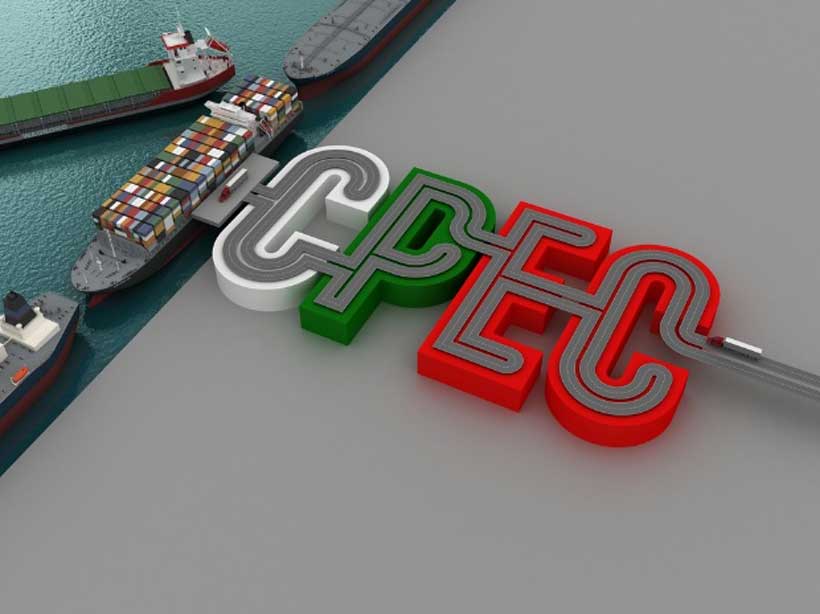BEIJING: Chinese experts said that the continuously strengthened cooperation in the China-Pakistan Economic Corridor (CPEC) under the Belt and Road Initiative (BRI) is poised to foster greater economic development momentum in Pakistan. It will also create new market potential for Chinese businesses.
The remarks were made as China and Pakistan recently unveiled five new corridors under CPEC, while Pakistani officials have reportedly expressed hope to revitalize cooperation within the BRI framework to bolster the country’s stagnating economy.
The identified five new corridors for the second phase of the CPEC include the Growth Corridor, the Economic Development Projects Corridor, the Innovation Corridor, the Green Corridor, and the Regional Connectivity Corridor. At a high-level meeting, Federal Minister Ahsan Iqbal highlighted the revival of projects in Gwadar and the newly identified corridor programs were the latest progress made under CPEC, which he hailed as a milestone in Pakistan-China friendship, laying a robust foundation for bilateral cooperation.
China-Pakistan economic cooperation is being upgraded across a number of sectors. It is expected the next stage of bilateral ties will focus on agricultural technology, infrastructure upgrades, and quick-win projects, Liu Xiaoxue, an associate research fellow at the National Institute of International Strategy under the Chinese Academy of Social Sciences, told the Global Times.
Amid intensifying global challenges, the importance of strengthening regional cooperation, especially between Pakistan and China’s vast Western regions, is growing for both countries. Liu noted that longstanding technical exchanges and trade cooperation between the two sides are expected to deepen.
The CPEC stands as a pivotal flagship project under the BRI framework. Established in 2013, CPEC has been instrumental in addressing entrenched problems impeding Pakistan’s development. It has significantly boosted Pakistan’s infrastructure and industrialization, leading to sustainable economic and social development.
Official data showed that as of the end of 2022, the program had cumulatively created 236,000 jobs for Pakistan and facilitated the addition of 510 kilometers of highways, 8,000 megawatts of electricity generation capacity, and 886 kilometers of core transmission network in Pakistan.
The BRI has not only boosted economic cooperation between China and Pakistan but also attracted increased international attention and global business opportunities to Pakistan, particularly in sectors such as agriculture, manufacturing, and new energies, Liu said.
Iqbal revealed that Pakistan’s Prime Minister Shehbaz Sharif, who was elected to a second successive term in March and seeking to revive China-Pakistan economic cooperation in the past two years, is likely to visit China soon.
On May 15, China’s Foreign Minister Wang Yi confirmed during his meeting with Foreign Minister Mohammad Ishaq Dar that China was committed to upgrading the CPEC while helping Pakistan to better achieve economic growth, improve people’s livelihood, and promote green growth.
Both sides agreed to ramp up efforts to strengthen cooperation across industry, agriculture, mining, new energy, information technology, and other fields. Wang stressed that existing major connectivity projects should be advanced to facilitate Pakistan’s development and unleash its geographical advantages.
`The CPEC is a corridor linking the Gwadar Port in Southwest Pakistan’s Balochistan province with Kashgar in Northwest China’s Xinjiang Uygur Autonomous Region, which highlights energy, transport, and industrial cooperation in the first phase, while the new phase expands to fields of agriculture and livelihood, among others. –Agencies






